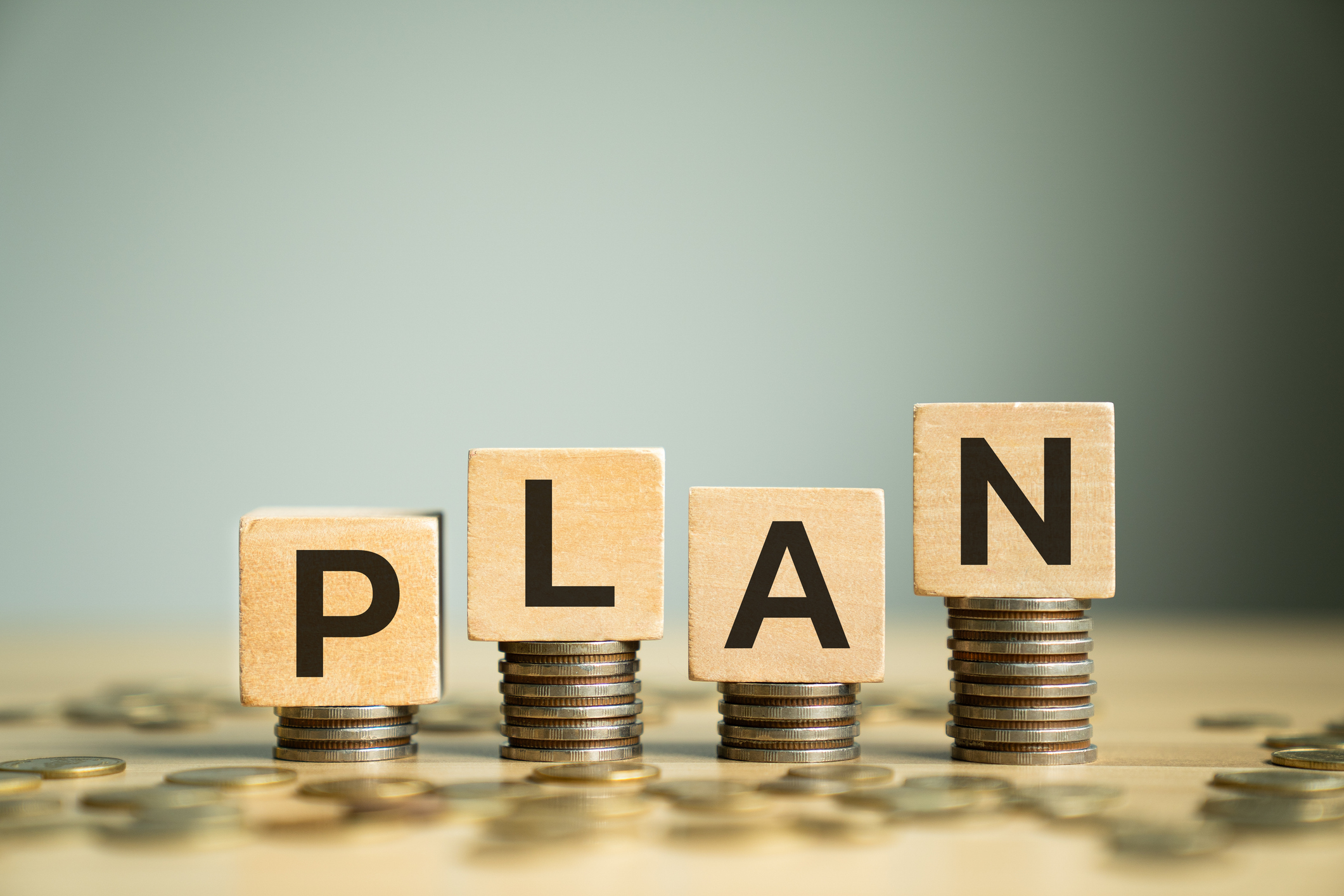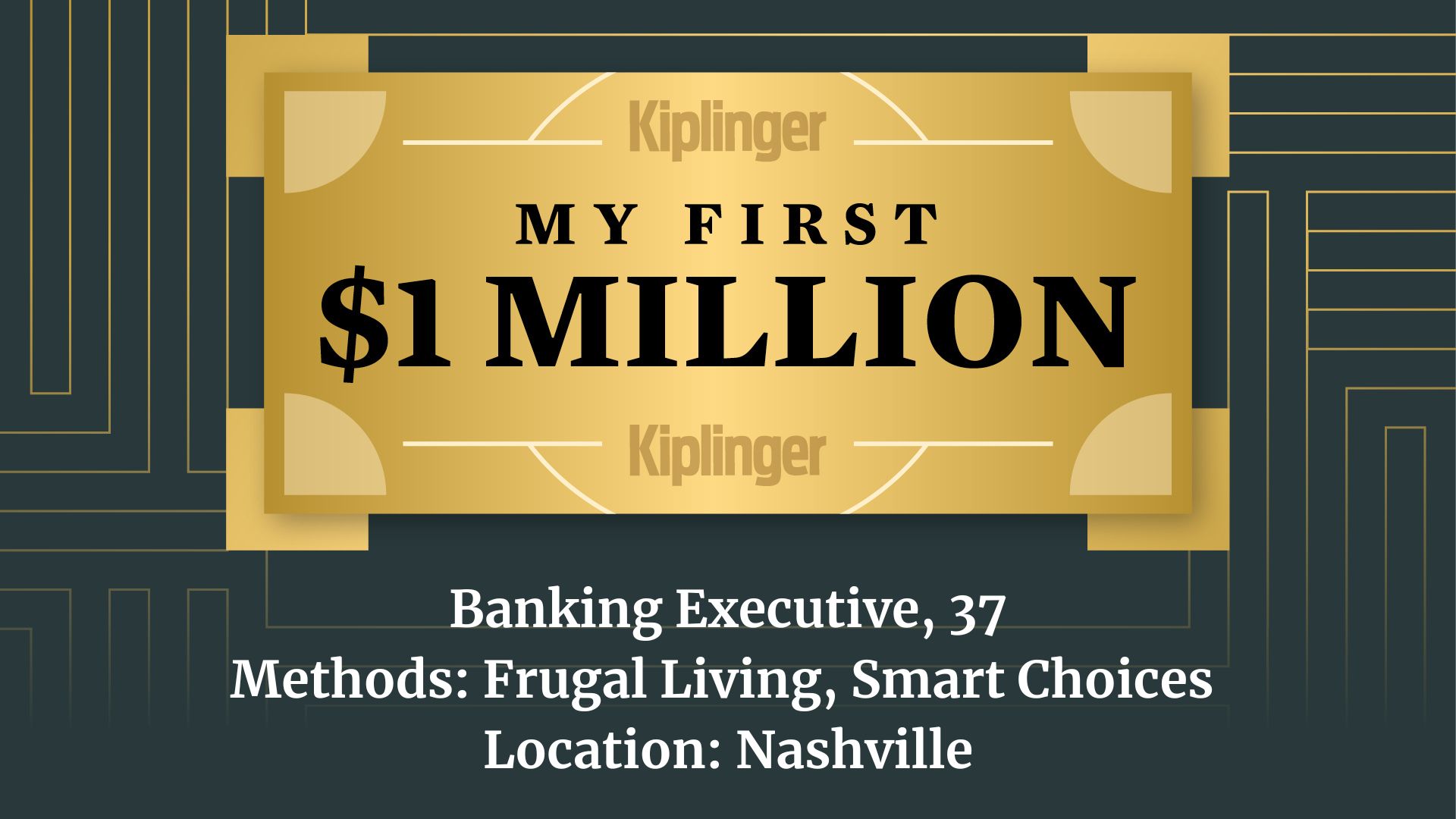CDs vs Money Market Accounts: Which Is Better for You?
Here's what you need to know when deciding on CDs vs money market accounts.

Profit and prosper with the best of Kiplinger's advice on investing, taxes, retirement, personal finance and much more. Delivered daily. Enter your email in the box and click Sign Me Up.
You are now subscribed
Your newsletter sign-up was successful
Want to add more newsletters?
As savings rates have been staying relatively high with the Federal Reserve holding back on interest rate cuts, you’ve probably thought about how you can take advantage of these high APYs. One way to do so is by deciding which savings account is the right fit for you.
Maybe you’re thinking about a CD vs. high-yield savings account, or maybe, you’re toying with the idea of CDs vs. money market accounts. If that’s the case, keep reading to learn more about whether or not you should choose one over the other.
Keep in mind that while each option offers different benefits, from ease of use and access to returns, these are both good options to keep your money safe. There is a lot to consider when deciding between the two.
From just $107.88 $24.99 for Kiplinger Personal Finance
Become a smarter, better informed investor. Subscribe from just $107.88 $24.99, plus get up to 4 Special Issues

Sign up for Kiplinger’s Free Newsletters
Profit and prosper with the best of expert advice on investing, taxes, retirement, personal finance and more - straight to your e-mail.
Profit and prosper with the best of expert advice - straight to your e-mail.
What are certificates of deposit (CDs)?
A certificate of deposit (CD) is a type of savings account that holds a set amount of money for a fixed time period. Term lengths can be anywhere from as little as six months, to 1-year CDs, to 5-year CDs. The rates on CD accounts are much higher than those found on traditional savings accounts, with many now offering an APY of over 5%.
Savings rates on CD accounts are locked in once you open the account, which is why many experts are suggesting that you take advantage of savings rates while they’re still high. However, when you put your cash in a CD account, you won’t be able to access this money until the account matures, or you’ll risk incurring a fee that can offset any interest earned.
When to open a CD: If you’re saving for a particular goal, like a future purchase, putting your cash in a CD can help. For example, if you plan on purchasing a vehicle in three years, opening a three-year CD can help you maximize your savings until you’re ready to make that purchase, while also helping you resist the temptation to spend that cash.
On the other hand, since your cash is inaccessible for a set period of time, CDs aren’t good options for money you could potentially need access to before the term is through, like an emergency fund. CDs are a good choice for individuals looking for a risk-free investment option.
What are money market accounts?
A money market account (MMA) is an interest-bearing account at a bank or credit union. MMAs differ from traditional savings accounts as they allow check-writing privileges and sometimes come with a debit card that can be used to access money at an ATM. Plus, they usually have much higher interest rates than traditional savings accounts.
Basically, they can be thought of as a blend of traditional checking and savings accounts. Like high-yield savings accounts, rates on money market accounts are variable, fluctuating with market conditions.
One main thing to keep in mind, however, is that many money market accounts often have higher minimum balance requirements when compared to high-yield savings accounts. If you fail to meet these balance requirements, you'll be stuck with a fee, which can offset any interest you've earned on your balance.
When to open a money market account: Money market accounts are good options for individuals who need to keep their savings easily accessible. Therefore, they're good choices when saving for a short-term goal or putting cash away in an emergency fund. However, make sure you'll be able to meet any minimum balance requirements so you're not stuck with any fees.
These accounts offer high savings rates, but make it easy for you to withdraw cash if needed — at no additional fee. Check-writing privileges and ATM access also make withdrawing funds more convenient than other savings accounts that require you transfer the money into a checking account first.
Bottom line deciding between CDs and money market accounts
Money market accounts and CDs vary in a few key ways. Mainly, money market accounts offer a level of liquidity that CDs don’t. In an MMA, your money is accessible, while in a CD your cash isn’t accessible until the term account matures.
Another way these accounts differ is that the savings rates on MMAs is variable, meaning it can go up or down depending on the market, which is beneficial if rates go up, but means less earnings if rates go down. On the other hand, since CDs offer a fixed rate, if rates go down your earnings won’t be affected.
Experts anticipate the Fed will cut rates at least one time before the close of 2024 and many believe a rate cut might come as soon at September at the next Fed meeting. Now is the time to lock in rates above 5% while they last.
Related Content
Profit and prosper with the best of Kiplinger's advice on investing, taxes, retirement, personal finance and much more. Delivered daily. Enter your email in the box and click Sign Me Up.

Erin pairs personal experience with research and is passionate about sharing personal finance advice with others. Previously, she was a freelancer focusing on the credit card side of finance, but has branched out since then to cover other aspects of personal finance. Erin is well-versed in traditional media with reporting, interviewing and research, as well as using graphic design and video and audio storytelling to share with her readers.
-
 Why Some Michigan Tax Refunds Are Taking Longer Than Usual This Year
Why Some Michigan Tax Refunds Are Taking Longer Than Usual This YearState Taxes If your Michigan tax refund hasn’t arrived, you’re not alone. Here’s what "pending manual review" means and how to verify your identity if needed.
-
 If You'd Put $1,000 Into Caterpillar Stock 20 Years Ago, Here's What You'd Have Today
If You'd Put $1,000 Into Caterpillar Stock 20 Years Ago, Here's What You'd Have TodayCaterpillar stock has been a remarkably resilient market beater for a very long time.
-
 Good Stock Picking Gives This Primecap Odyssey Fund a Lift
Good Stock Picking Gives This Primecap Odyssey Fund a LiftOutsize exposure to an outperforming tech stock and a pair of drugmakers have boosted recent returns for the Primecap Odyssey Growth Fund.
-
 5 Laundry Habits That Are Costing You Money
5 Laundry Habits That Are Costing You MoneyYou might be flushing money down the drain if you have any of these laundry habits.
-
 How Much Savings Do You Actually Need to Feel Financially Secure? Start With These 3 Benchmarks
How Much Savings Do You Actually Need to Feel Financially Secure? Start With These 3 BenchmarksFrom your first $1,000 cushion to a full emergency fund, here's how to build savings in stages and why each level matters.
-
 The Wealth-Building Roadmap That Works at Any Age
The Wealth-Building Roadmap That Works at Any AgeA phase-based approach tied to your finances — not your birth year — can help you build wealth whether you’re just starting out or catching up.
-
 My First $1 Million: Banking Executive, 37, Nashville
My First $1 Million: Banking Executive, 37, NashvilleEver wonder how someone who's made a million dollars or more did it? Kiplinger's My First $1 Million series uncovers the answers.
-
 10 Decluttering Books That Can Help You Downsize Without Regret
10 Decluttering Books That Can Help You Downsize Without RegretFrom managing a lifetime of belongings to navigating family dynamics, these expert-backed books offer practical guidance for anyone preparing to downsize.
-
 New Ways to Keep Your Online Accounts Safe
New Ways to Keep Your Online Accounts SafeAs cybercrime evolves, the strategies you use to protect yourself need to evolve, too.
-
 Can Your Car Insurance Add Strangers to Your Policy? A Florida Class Action Lawsuit Could Decide
Can Your Car Insurance Add Strangers to Your Policy? A Florida Class Action Lawsuit Could DecideA Florida driver says GEICO added complete strangers to her car insurance policy and jacked up premiums as a result.
-
 Life Loves to Throw Curveballs, So Ditch the Rigid Money Rules and Do This Instead
Life Loves to Throw Curveballs, So Ditch the Rigid Money Rules and Do This InsteadSome rules are too rigid for real life. A values-based philosophy is a more flexible approach that helps you retain confidence — whatever life throws at you.